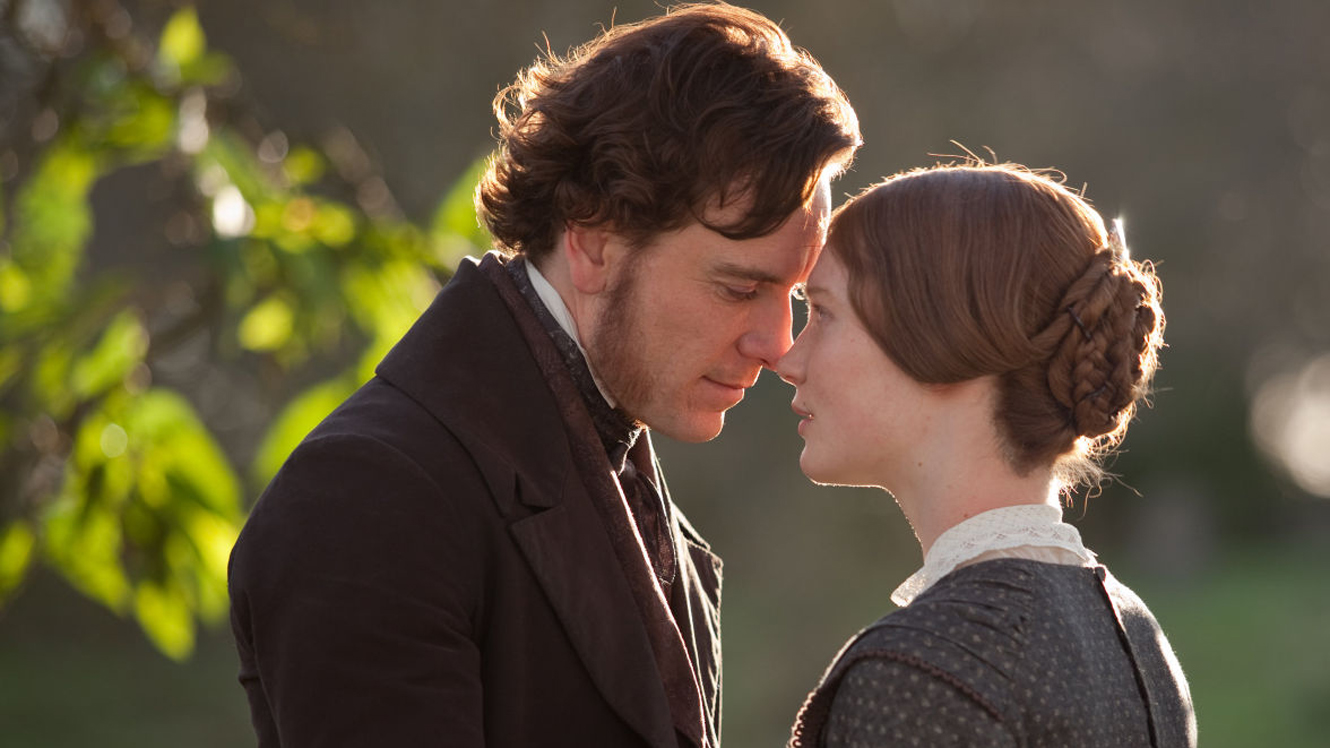Review: Jane Eyre (2011)
There is no definitive film version of Jane Eyre and there never will be. The great novels of the nineteenth century, like the plays of Shakespeare, are great living creatures, so full of vitality and depth that no adaptation can ever contain the whole of one. With each new adaptation filmmakers can only strive to present their own vision of the story and characters, and hopefully their perspective will capture the spirit of the novel as well as draw out and illuminate certain themes or aspects of the book. This, the latest adaptation of Charlotte Brontë’s passionate, affecting novel about a young governess, does just that. It is a successful adaptation, but, what is more important, it is also a successful film.
Screenwriter Moira Buffini has streamlined Brontë’s plot and rearranged the order in which some of the events are told. Thus, the movie begins with a heartbroken Jane running away from Thornfield Hall, wandering the moors, and arriving faint and weary on the doorstep of St John (pronounced “sinjin”) Rivers, who takes her in. Very soon though the movie flashes back to Jane’s oppressive childhood, and then progresses on from there. My fears about the death of chronological storytelling aside, the resulting movie, which focuses on the romance between Jane and Mr. Rochester, works very well, and is accessible to modern audiences while retaining an authentic period feel.
The film is artfully, even exquisitely, shot. The desolate Yorkshire moors emphasize the isolation and coldness of Jane’s world. The dark candlelit hallways of Thornfield externalize Jane’s inner fears and also create feelings of dread in the audience. The novel’s Gothic atmosphere comes through very prominently in the film, but it is never tawdry or overdone.
The best part of the film, however, is the acting. Mia Wasikowska’s Jane is outwardly restrained yet inwardly spirited. Michael Fassbender is good as the Byronic Edward Rochester, as he is able to be both unpleasant and alluring, both moody and fiery. What really makes this love story work is the tension generated between Jane and Rochester, especially during their evening chats before the fireplace, for without the inner fire of either character, would this story of chaste love and repressed desire still speak to us?
8 out of 10
Jane Eyre (2011)
Directed by Cary Fukunaga; screenplay by Moira Buffini based on the novel by Charlotte Brontë; starring Mia Wasikowska, Michael Fassbender, and Jamie Bell.
